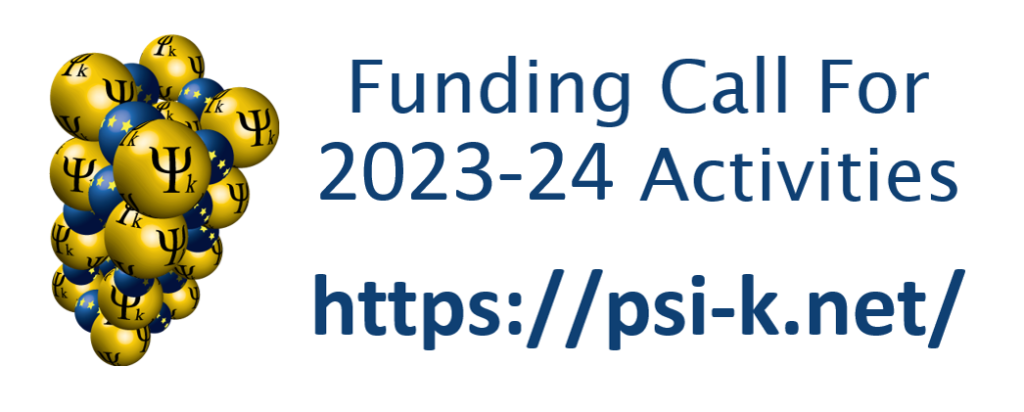
Psi-k is a worldwide network of researchers working on the advancement of first-principles computational materials science. Its mission is to develop fundamental theory, algorithms, and computer codes in order to understand, predict, and design materials properties and functions. Key activities of Psi-k are the organization of conferences, workshops, tutorials and training schools as well as the dissemination of scientific thinking in society [Excerpt from the mission statement at http://psi-k.net/ ].
Psi-k typically funds schools (1-2 weeks), workshops (2-3 days), international conferences (2-5 days), and codes/methods tutorials (3 days-1 week), with a focus on electronic-structure methods, developments, and applications. Funding is of the order of 4,000/8,000/12,000 €, depending on size and duration (as a guideline, 30 €/expected participant/day); Psi-k funds around 25-35 activities for every call (see here http://psi-k.net/workshops/ for the 2022-23 activities).
For this coming round, we are particularly keen to support activities that benefit PhD students and early career researchers, who have missed out on in-person events during the pandemic – schools and tutorials in particular. We also continue to encourage the ingenious development of remote delivery methods where appropriate, to widen the benefit of our activities to groups where the cost of in-person attendance may be a barrier.
We have a two-step application process to simplify and streamline applications, elicit more original proposals, improve planning, and avoid duplication of efforts. The present call for outline proposals is for events that will take place between 1 April 2023 and 31 March 2024.
Outline proposals should be submitted online by Monday 18 July 2022 (midnight UK time), describing the planned event (download a draft of the form to see a preview of the questions that you will be asked here). Psi-k Working Groups (http://psi-k.net/groups ) and Trustees (http://psi-k.net/admin/) will either approve this outline proposal for full submission, reject it, or suggest a merger between different activities – you are very welcome to contact the relevant Working Group leaders or members beforehand.
Feedback will be provided the week of Monday 19 September 2022. Outline proposals that have been approved or mergers that have been successfully negotiated will then be invited to submit a full proposal by Monday 17 October 2022. These proposals will then be evaluated and approved – with full or partial funding – or declined at the meeting of the Trustees, Scientific Advisory Committee (http://psi-k.net/scientific-advisory-committee/) and Working Group leaders on Friday 25 November 2022.
The evaluation of the outline proposals and full proposals will be based on
- the relevance to the Psi-k mission statement;
- the scientific quality of the proposal;
- the intellectual inclusivity, geographical spread and diversity of the proposed participants, including efforts to widen participation beyond established groups;
- the scientific merit, geographical spread and diversity of the organizers; and
- the appropriateness of budget
NOTES
- in case of events that can interest different Working Groups please name the primary Working Group and then any related groups
- if the event does not relate to any current Working Group, applicants should contact in advance Psi-k at [email protected].
SUBMIT YOUR OUTLINE PROPOSAL HERE

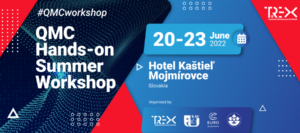

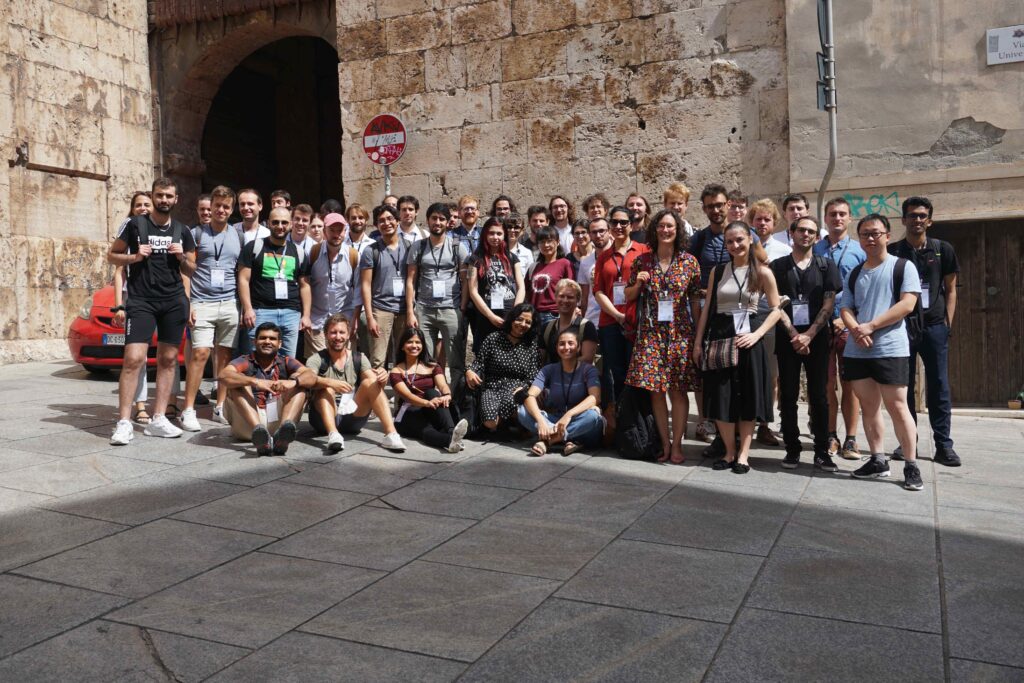
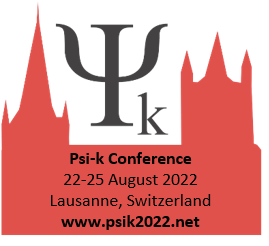
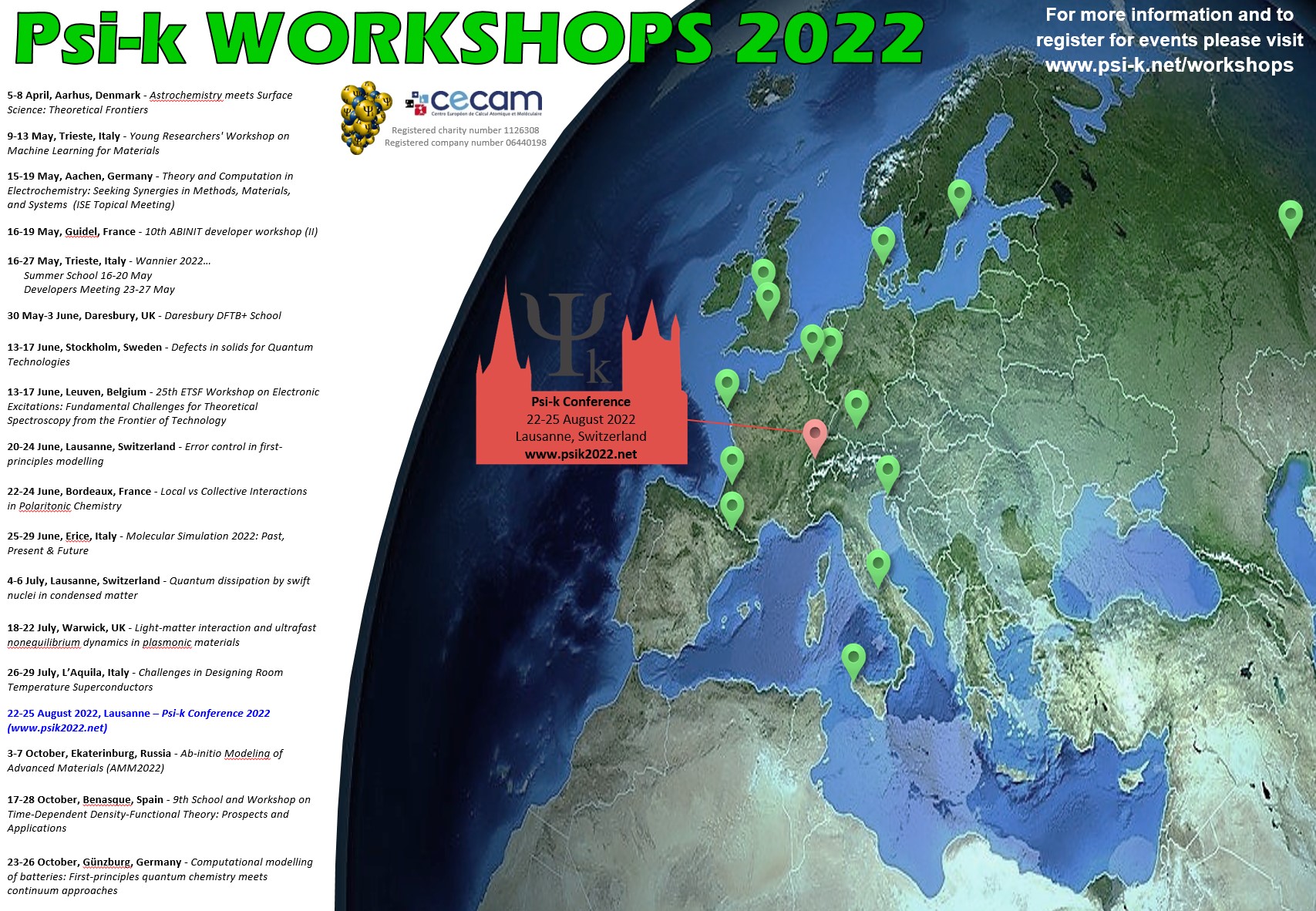
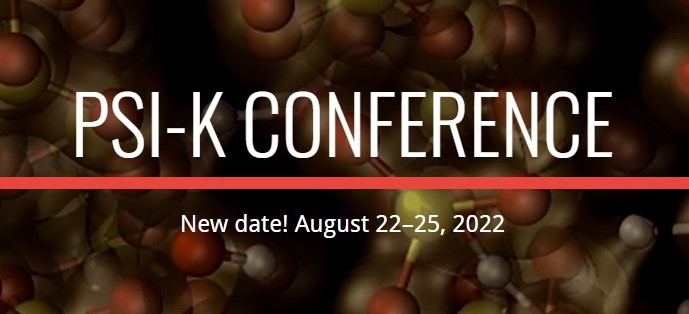
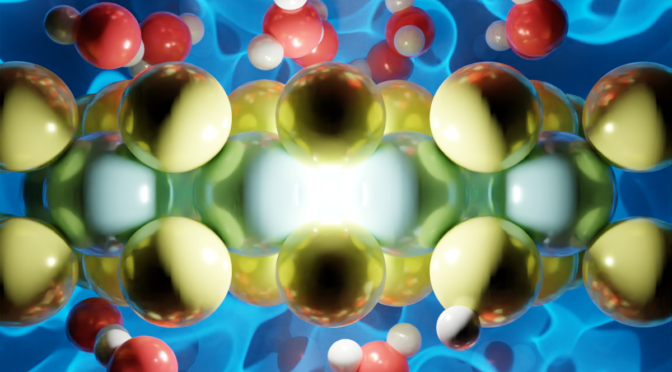
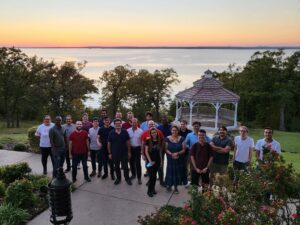
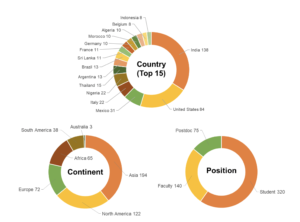
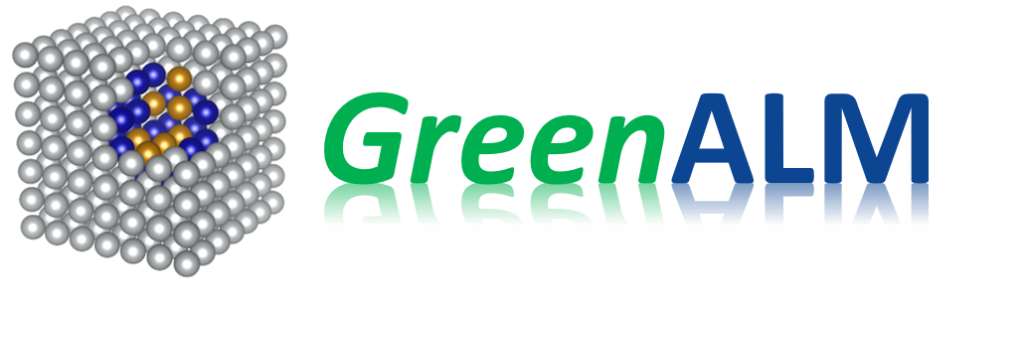

REGISTER HERE